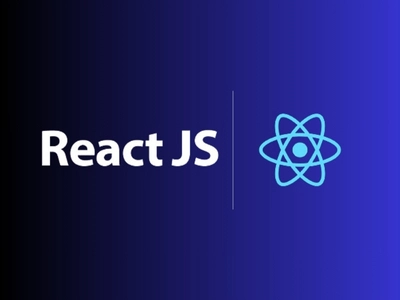Elevating Workplace Excellence: A Comprehensive Guide to Employee Engagement Vendors
In the dynamic landscape of modern workplaces, fostering employee engagement has become a strategic imperative for organizations aiming to thrive in a competitive environment. Recognizing the significance of an engaged workforce in driving productivity, innovation, and overall organizational success, businesses are turning to specialized employee engagement vendors. In this comprehensive guide, we delve into the nuances of employee engagement vendors, exploring their vital role, key features, top players in the industry, and how organizations can strategically leverage these solutions to create workplaces that inspire excellence.
The Essence of Employee Engagement:
Employee engagement transcends traditional notions of job satisfaction. It represents the emotional commitment and connection employees have with their organization. Engaged employees are not merely content with their jobs; they are motivated, dedicated, and aligned with the organization’s mission and values. The journey toward enhanced employee engagement involves a multifaceted approach, and employee engagement vendors play a pivotal role in this transformative process.
Understanding Employee Engagement Vendors:
Employee engagement vendors are specialized entities that offer a suite of tools, services, and strategies designed to measure, enhance, and sustain employee engagement. These vendors recognize the evolving needs of organizations to create positive workplace cultures and provide solutions that empower businesses to connect with their workforce on a deeper level.
Key Features of Employee Engagement Vendors:
- Surveys and Feedback Tools:
- Effective employee engagement vendors provide robust survey tools that allow organizations to gather real-time feedback from employees. These tools often include customizable surveys, pulse surveys, and sentiment analysis to gauge the overall mood and satisfaction of the workforce.
- Performance Management:
- Many vendors integrate performance management tools within their platforms. These tools enable organizations to align individual goals with broader company objectives, fostering a culture of continuous improvement. Performance management features often include goal setting, feedback mechanisms, and performance analytics.
- Recognition and Rewards Systems:
- Employee engagement vendors understand the importance of recognizing and rewarding contributions. Platforms often include features that facilitate employee recognition, whether through peer-to-peer acknowledgment, virtual badges, or other forms of appreciation. A robust recognition and rewards system contributes significantly to a positive workplace culture.
- Wellness and Work-Life Balance Tools:
- As employee well-being becomes a focal point, vendors are incorporating wellness and work-life balance tools into their platforms. These may include resources for mental health, fitness challenges, and features that promote a healthy work-life balance. Prioritizing employee well-being enhances overall engagement and satisfaction.
- Communication and Collaboration Tools:
- Effective communication is at the heart of employee engagement. Vendors often offer tools that facilitate seamless communication and collaboration within teams. Features may include chat platforms, virtual meeting spaces, and collaboration tools that enhance teamwork and foster a sense of connection among remote or dispersed teams.
- Learning and Development Opportunities:
- Employee engagement vendors recognize the importance of continuous learning and development. Platforms may include features such as e-learning modules, training resources, and career development tools to empower employees in their professional growth, contributing to increased engagement.
Top Employee Engagement Vendors:
- Glint (LinkedIn):
- Glint, now part of LinkedIn, offers a comprehensive employee engagement platform that utilizes real-time analytics to measure and improve engagement. With features like pulse surveys and actionable insights, Glint provides organizations with the tools to proactively address areas affecting employee satisfaction.
- Culture Amp:
- Culture Amp focuses on providing a platform for organizations to gather, understand, and act on employee feedback. Their tools include employee surveys, performance management solutions, and analytics to drive meaningful changes in workplace culture.
- 15Five:
- 15Five specializes in performance management and employee engagement. The platform facilitates continuous feedback, goal tracking, and recognition to create a culture of open communication. Features like weekly check-ins and 1-on-1 meeting agendas strengthen the employee-manager relationship.
- Qualtrics EmployeeXM:
- Part of the Qualtrics Experience Management platform, EmployeeXM offers a comprehensive solution for measuring and improving employee experiences. It includes features such as employee lifecycle feedback, onboarding, and employee journey mapping to enhance engagement.
- Peakon (Workday):
- Acquired by Workday, Peakon is a platform designed for collecting and analyzing employee feedback. With a focus on providing real-time insights, Peakon helps organizations understand the drivers of engagement and take actionable steps to improve the employee experience.
Benefits of Employee Engagement Vendors:
- Increased Productivity:
- Employee engagement vendors empower organizations to identify factors affecting productivity and implement targeted strategies for improvement. By fostering a positive work environment and aligning individual goals with organizational objectives, employees are motivated to enhance their performance.
- Enhanced Employee Well-Being:
- Wellness and work-life balance tools offered by engagement vendors contribute to the overall well-being of employees. These tools address mental health, promote healthy lifestyles, and create a supportive environment that values the holistic health of the workforce.
Visit CultureMonkey for more information.
- Improved Communication:
- Communication and collaboration tools facilitate transparent and open communication within organizations. Employees feel connected to the broader team, regardless of geographical locations, leading to improved collaboration and a sense of belonging.
- Better Talent Retention:
- Organizations that prioritize employee engagement often experience lower turnover rates. Engaged employees are more likely to stay with a company that values their contributions, provides growth opportunities, and fosters a positive workplace culture.










